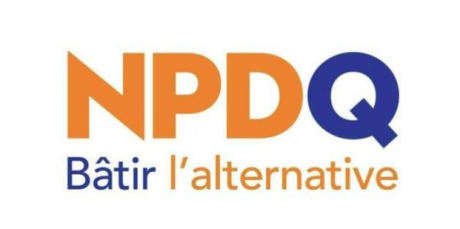What we think
You are here
Québec solidaire and the NDP

January 23, 2018
For nearly 20 years, progressives, social democrats and anti-capitalists have struggled to build a viable electoral left in Quebec. In the last decade, this has borne fruit with the founding of Québec solidaire (QS), and its growth in the National Assembly, the popular vote, and in social movements.
On issues from climate change to neoliberalism and austerity, Québec solidaire has a more radical program and platform than the NDP either federally or in any province. But it also grew out of the remnants of the Quebec provincial NDP, and had a lot of crossover with what produced Quebec’s Orange Crush that helped propel the NDP into opposition federally.
What caused a collapse of that support was not the niqab debate. In the 2015 campaign, the Liberals were more steadfast and clear on the right to wear the niqab than the NDP, and did very well in Quebec. It was the Liberals’ outflanking of the NDP to the left on balanced budgets, public spending, and austerity – issues that run deep in Quebec.
Québec solidaire has worked diligently to fill the vacuum left by a Parti québécois no longer able to even mask as a party of the left with its turn to a racist identity politics and to Quebec bosses like Pierre-Karl Peladeau.
And in building this alternative within the Quebec context, QS has made every attempt to be solidaristic with the left in English Canada. It is not an accident that QS adopted orange as its party colour. And it has carried that colour not only at the ballot box but in the streets, to make a left electoral option relevant to those who want change but don’t see it reflected in mainstream politics.
Mutual harm
This is why it is so unfortunate to see the NDP try to relaunch itself in Quebec to run candidates in the October 2018 provincial election. It is unlikely to have a great electoral impact, but it is a strategy that promises nothing but mutual harm to the left in both Quebec and English Canada in the big picture.
The goal is apparently to provide Quebec with a progressive “federalist” option. But who is the audience? Even those on the left who are lukewarm on independence support self-determination – which explains support for Jack Layton, an opponent of the Clarity Act, and why Jagmeet Singh is getting a more favourable reaction in Quebec than many predicted, as he too supports Quebec’s right to choose.
While they say they want to reach political “orphans” the only audience this version of the NDP-Quebec is likely to reach will not be relevant to the movements that fuel social change in Quebec today. And if they do succeed in reaching some of the 35 per cent of people who don't vote, they will be steering them away from those very social movements, which will do a disservice to any progressive voters they may attract.
If the goal is to woo immigrant communities, forming a party with no roots on the eve of an election is a spectacularly bad idea. Not to mention playing the old and false card that the Quebecois are more racist (by a party that is itself very white in its provincial make-up) and need to be rescued by the NDP. Any attempt to play an anti-Islamophobia stance against Québec solidaire will be unproductive, as QS opposes the PQ Charter of Values and the Liberals’ Bill 62 on the niqab.
The newly elected leader of NDP-Quebec, Raphaël Fortin, was quoted as saying, “What distinguishes us is that Quebec solidaire has made a turn towards independence in the merger with Option nationale.” While Option nationale may have some different positions from QS on the specifics of independence, it was a smaller party with many other social goals in common with QS. The other decision QS made this year, to reject all notion of an alliance with the PQ, shows that it does not see independence as a goal in itself to create a “Quebec Inc” that would mimic the corporatist, neoliberal, pro-pipeline and socially unjust policies tolerated and even implemented by the NDP when it has held power, but rather as a means to gain independence from those federal policies.
When Thomas Mulcair was federal leader, he argued for the NDP to run candidates provincially in Quebec. At this moment, the link with the federal party is unclear: Fortin has been quoted as saying the only links are the name and some progressive ideas, and that no federal members are involved. They have even adopted purple to avoid confusion with QS’s orange.
Everything about this move is confusing at best, and paternalistic at worst. For those on the committed left in Quebec, it risks further undermining the hard-won trust of non-federalist progressives for the federal NDP, and squandering not only what’s left of the Layton legacy in Quebec but the profile that Singh could now bring. And above all, it puts electoralism before solidarity.
Section:
Topics:









